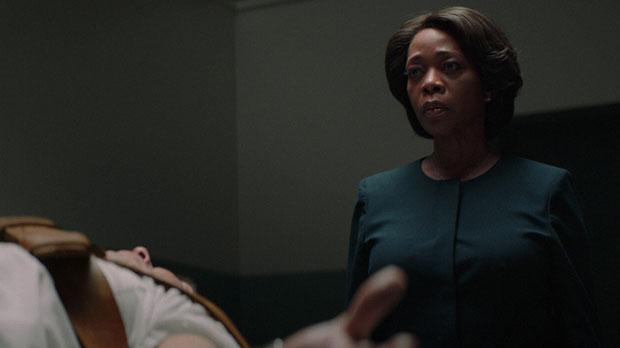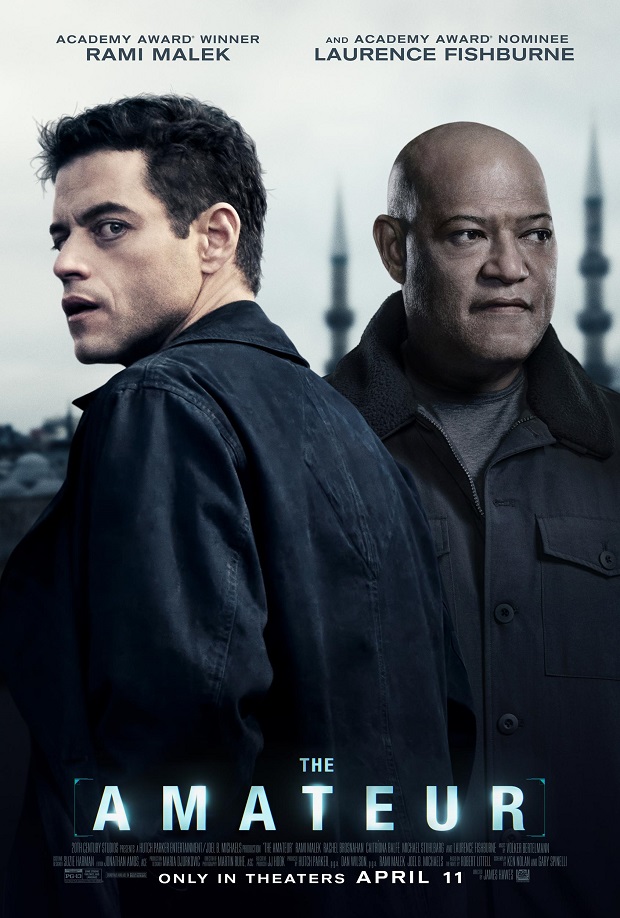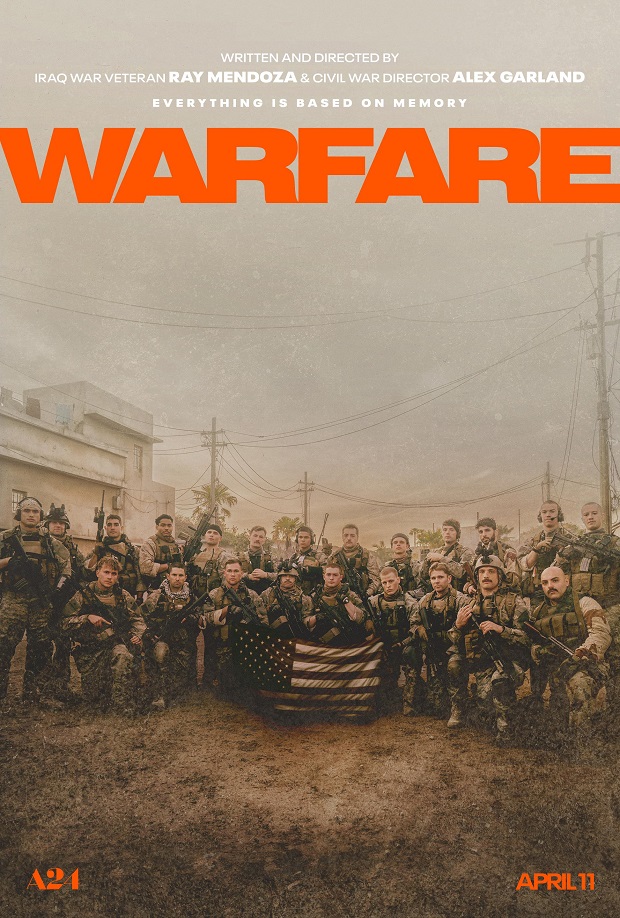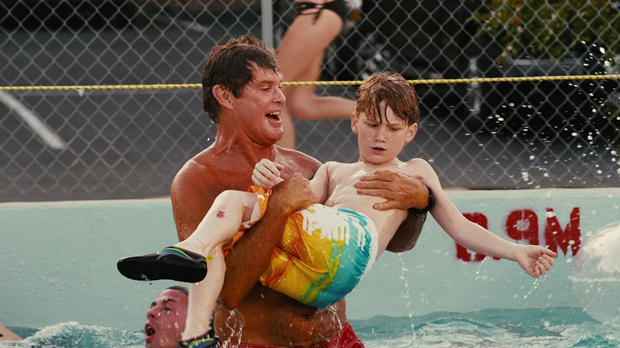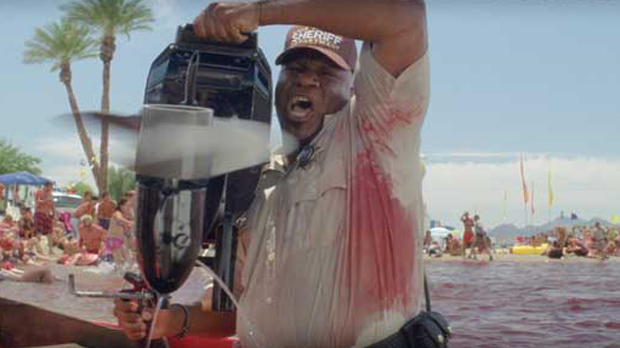 Clemency (2019) Neon/Drama RT: 113 minutes Rated R (some disturbing material, language) Director: Chinonye Chukwu Screenplay: Chinonye Chukwu Music: Kathryn Bostic Cinematography: Eric Branco Release date: January 17, 2020 (Philadelphia, PA) Cast: Alfre Woodard, Richard Schiff, Danielle Brooks, Michael O’Neill, Richard Gunn, Wendell Pierce, Aldis Hodge, LaMonica Garrett, Vernee Watson-Johnson, Dennis Haskins, Michelle C. Bonilla, Alma Martinez. Box Office: $364,952 (US)
Clemency (2019) Neon/Drama RT: 113 minutes Rated R (some disturbing material, language) Director: Chinonye Chukwu Screenplay: Chinonye Chukwu Music: Kathryn Bostic Cinematography: Eric Branco Release date: January 17, 2020 (Philadelphia, PA) Cast: Alfre Woodard, Richard Schiff, Danielle Brooks, Michael O’Neill, Richard Gunn, Wendell Pierce, Aldis Hodge, LaMonica Garrett, Vernee Watson-Johnson, Dennis Haskins, Michelle C. Bonilla, Alma Martinez. Box Office: $364,952 (US)
Rating: ** ½
I made a promise after seeing the Pauline Kael documentary that I would never again allow myself to be swayed by the opinions of others when reviewing a film. It’s with this thought in mind that I set pen to paper (figuratively speaking, of course) and compose my review of Clemency, the latest drama to address the hot-button topic of the death penalty. Unlike the recent Just Mercy and about 100 other similar films, it doesn’t involve a team of idealistic lawyers and students working tirelessly to prove a condemned inmate’s innocence before his number comes up. The focus this time is on the psychological effects on the prison warden tasked with overseeing executions at the correctional facility where most of the action takes place.
I get that Clemency is a character study of Bernadine Williams (Woodard, Passion Fish), an emotionally paralyzed woman forced to confront her own demons when it comes time to prepare another Death Row inmate, Anthony Woods (Hodge, Brian Banks), for his date with the needle. Her husband Jonathan (Pierce, The Wire) describes her as “an empty shell” and he isn’t wrong. She keeps herself emotionally distant from everyone including her husband. It’s all because of the psychological toll her job has taken on her over the years. In this respect, Clemency does its job well thanks in large part to a dynamite performance from Woodard. Why she isn’t nominated for an Academy Award is a mystery. Out of this year’s five nominees, I can think of one that doesn’t really deserve the honor. I won’t mention her name but she’s done better.
That’s what I like about Clemency and this is where I diverge from the majority. I find the rest of the film lacking. Specifically, it’s unfocused. Instead of sticking to the point, it introduces other story elements like the botched execution that opens the film. It stands to reason that an investigation into how it happened would follow. Mention is made of such an investigation on more than one occasion but we never see it. Instead, another execution is scheduled almost immediately. That would be Woods, an accused cop killer whose lawyer (Schiff, The Good Doctor) is trying his hardest to get the governor to grant him clemency based on evidence that proves his innocence. While Clemency isn’t about this, the fact that it’s brought up at all demands more attention.
There are other things like Bernadine’s possible affair with her assistant warden (Gunn, Dark Angel) that are brought up and dropped. What I’m getting at is there’s no follow-through on a lot of Clemency. Other times, director Chinonye Chukwu takes shortcuts. At one point, Bernadine’s husband leaves her. A few scenes later, he’s back home to wake her from a bad dream. What happened? In addition, Chukwu doesn’t make good on his introduction of birds as a symbol for freedom. It should have been a recurring motif throughout, but like a lot of other things it’s dropped.
I will concede that Hodge turns in a near-great performance as Woods, a man shut down emotionally by a fate he’s powerless to change. He’s unable to utter a single word when Bernadine dutifully asks him what he wants for his last meal. It’s the screenplay that does him wrong. We’re expected to believe that he suddenly becomes hopeful after a suicide attempt and a letter telling him he has a son he never knew about. I don’t know about you, but I didn’t buy it. In any event, Hodge brings a measure of dignity to the role especially in his final moments when he delivers a few pointed last words.
So as you can see, I’m really on the fence about Clemency. While I admire what it tries to do through Woodard’s brilliant performance, I don’t think it’s very good as a whole. It has a few powerful moments like the climactic death scene experienced solely through Bernadine’s facial expressions. The camera stays on her the whole time and it is wrenching. The hardened façade, the emotional distance she maintained through the whole ordeal (and presumably her entire tenure as warden) finally begins to evaporate.
Despite such moments, I couldn’t connect with Clemency. Most of the time, I wished it would make a point. At the very least, I wanted to hear more about the lawyer’s efforts to stop the execution. It bears mentioning that Clemency is based on the real-life story of Troy Davis, a black man executed in Georgia in 2011 for killing a cop despite the preponderance of evidence disproving his guilt. It’s terrible when the system fails; it affects more than just the wrongly executed prisoner. A great movie should be made about this; unfortunately, Clemency is not that movie.
